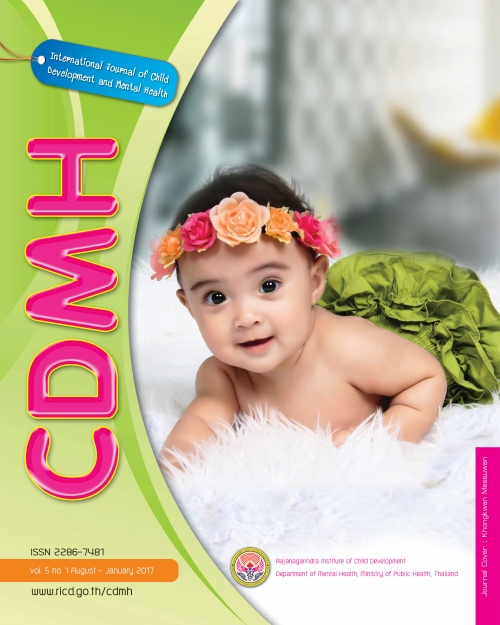Adaptation of assessment of pervasive developmental disorder in lower income countries
Main Article Content
Abstract
The project aimed to investigate the possibility of adaptation of assessments for
diagnosing Pervasive Developmental Disorder in a Southeast Asian country. This paper presents a personal project, at first created for humanitarian purposes. The main difficulties were the nonadaptation of the material, and the confusion between autism and mental retardation. The project took place in a special education centre in Vientiane, Laos. It involved 23 children who first screened positive with M-CHAT. Out of the 23 children participating in the project, 13 were diagnosed with a PDD. The scores at ADOS and ADI-R
matched, showing that the use of the gold standard may be considered as relevant in Laos. However, a study on a bigger sample has to confirm this conclusion. The results showed the need to adapt the material of ADOS, as well as the necessity of collaboration with local experts and developing awareness of autism. This study result is inconclusive concerning the epidemiology of autism in Laos, regarding the small size of the sample. The factors associated with the difficulties of the diagnosis process in Laos may be found in others area of South-East Asia. The specificities of Laos concerning the diagnosis of autism are: tonal
language, lower access to information, lower or no access to specific medical resources on autism, rural population, difference in the use of toys, reasons of parental first worries, diversity of population and languages.
Article Details
The authors retain copyright and permit the journal the copyright of first publication
Articles, once having passed the review process and accepted for publication in the CDMH Journal, are copyrighted under the CDMH Journal, Department of Mental Health, Ministry of Public Health. Please be aware distribution of CDMH Journal content for commercial purposes without permission is expressly prohibited. However, distribution with intent to educate, advocate, or spread awareness within the general public and research communities is permitted and encouraged with the understanding that the CDMH Journal Editorial Board do not hold jurisdiction or liability for any accompanying comments, text, or information from third parties, either in favor for or against the original article’s assertions, conclusions, methodology, or content.


